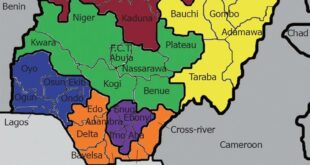The Central Bank of Nigeria (CBN) has announced the lifting of the foreign exchange restrictions on the importation of 43 items that were implemented eight years ago. The bank said this was a significant change to the foreign exchange market policy that would boost liquidity and promote economic growth.
The CBN imposed the restrictions in June 2015 as part of its measures to conserve the dwindling foreign reserves and support the local production of the affected items. The list of restricted items included rice, cement, margarine, palm oil, vegetable oil, meat, poultry, fish, steel, iron, wood, glass, tiles, soap, cosmetics, tomatoes, and eurobonds.
The bank had argued that the restrictions were necessary to reduce the pressure on the naira, which had depreciated sharply due to the fall in oil prices and the demand for foreign exchange. The bank had also claimed that the restrictions would stimulate domestic production and create jobs.
However, the policy had faced criticism from various stakeholders, who argued that it had increased the cost of doing business, created a scarcity of essential goods, fueled inflation, and encouraged smuggling and corruption. They also said that the policy had failed to achieve its objectives of boosting local production and saving foreign reserves.
In a statement signed by its Director of Corporate Communications, Dr. Isa AbdulMumin, the CBN said it had decided to lift the restrictions after reviewing the impact of the policy and consulting with relevant stakeholders. The bank said it would continue to promote orderliness and professional conduct in the foreign exchange market and ensure that market forces determine exchange rates on a willing buyer-willing seller principle.
The bank also said it would intervene in the market from time to time to boost liquidity and stability. It added that as market liquidity improves, these interventions will gradually decrease.
Subscribe to the Advocate News letter and receive news updates daily in your inbox.
 Advocate.ng Latest news update on politics, entertainment, sport and more
Advocate.ng Latest news update on politics, entertainment, sport and more




